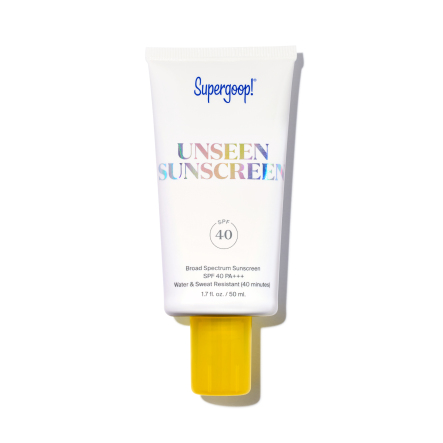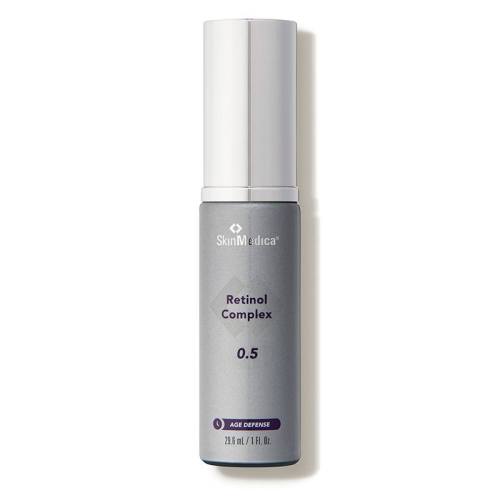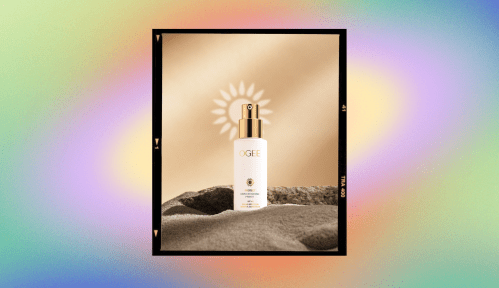3 steps to even out your skin tone after a summer of (too much) fun
After the summer, dermatologists and estheticians have created the perfect skin kit to even our your skin tone and get things back on an even keel for the rest of the year and beyond.

If summer were a crush, it would be the level of heartthrob country music ballads are written about. You know, the kind that loves you and leaves you. The kind that’s a good time while it’s here, but better have a nice backside because it’s gonna be gone soon, leaving teardrops on the floor and heartbreak in the air. Only, in the case of summer, those teardrops and heartbreak take the form of so much pigmentation and clogged pores on your otherwise glowing complexion. Because while the high-humidity sunshiny days can feel like a warm hug that greets you when you walk outside, the truth is, summer leaves behind a lot of damage on your skin.
And while this season is the most obvious culprit for your freckles and dark patches because the UV index is highest during these months, your skin tone can get uneven any time of the year, due to hormonal changes in your body and even environmental aggressors, like pollution, that are just chilling freely in the air. So, according to the experts with whom I chatted, pampering your face should be a 365-day job in order to have even skin. Here’s what you should know
Here’s how to even our your skin tone
1. Apply sunscreen every. single. day.
Like so many skin-care issues, prevention is the name of the game, so regardless of the season, you should be loading up on sunscreen to protect yourself from harmful UV rays. That means a daily dose of at least SPF 30 (I’m currently loving Supergoop Unseen Sunscreen SPF 40) can help to keep skin protected and prevent pigment cells from firing up. “Aging of the skin can occur when the skin is unprotected or poorly protected from the sun. And with fairer skin types, this can lead to discoloration (dyschromia) that can be difficult to cover with makeup,” explains board-certified plastic surgeon Julius Few, MD, FACS.
While the sun is a huge culprit behind your complexion’s discoloration patches, it’s not the only cause of unevenness in your skin tone. “The change in hormones with aging allows the skin to be more sensitive to the environment and makes uneven skin a problem,” Dr. Few adds. “As the skin loses its elasticity, pores become larger and more visible, making the skin uneven and wrinkles more notable.” Commonly skin pigmentation conditions, such as melasma, are the result of hormonal changes that can result in discoloration that requires a targeted approach to address.

Supergoop! Unseen Sunscreen — $34.00
This SPF has chemical sunscreen filters like avobenzone, homosalate, octocrylene, and octisalate, which together fend off both UVA and UVB rays. Because it is meant to sink into skin to absorb and convert rays to heat, it won’t show up with a goopy, thick texture. Apply it ahead of your moisturizer and allow 15 minutes before going into the sun.
2. Use retinol to exfoliate at night
So how do you deal post-summer or once you see pigmentation pop up? The name of the game is exfoliation. Dr. Few explains that for anyone experiencing pigmentation or an uneven skin tone, the best course of action is to hit it from all angles. “Combination or stackable treatments work best, so we recommend at-home retinol and vitamin C-based treatments to enhance the skin’s appearance,” he shares.
Retinol, a vitamin A derivative, is pretty much the heavyweight champion of all anti-agers. In addition to stimulating collagen, it speeds up cell turnover, which means that it helps to create new cells to replace the old, tired ones. That’s great news when it comes to any form of hyperpigmentation, because the ingredient helps to fade dark spots (in addition to a whole slew of things like taming acne, for instance). However, it’s strictly a nighttime ingredient, because it can be photosensitizing, which means that it makes you more susceptible to the sun. To test out a retinol, look for a more tame dose (commonly on packages, you’ll see this as “.5”). SkinMedica Retinol Complex (from $70) offers options that range from 0.5 to 1.0.

SkinMedica Retinol Complex 0.5 — $78.00
This dermatologist-beloved retinol is a middle-of-the-road strength. Apply it at night and then make sure to war sunscreen over it since the ingredient can be sun sensitizing.
3. Try a brightening vitamin C product for daytime
In the morning, you want to work on evening out your skin tone by reaching for an all-star daytime ingredient such as a vitamin C serum. It can work wonders on your skin, because while it’s a magnificent brightener, it’s also a potent antioxidant. This means it can help fend off free radicals (those pesky things that come from pollution) by capping their unbound electrons, which can also be responsible for causing pigment cells to fire and create an uneven skin tone.
“Vitamin C as an antioxidant is the most researched of antioxidants in the world,” says Ole Henriksen, who founded his eponymous skin-care line. “One of the great benefits is that when you use clinically proven, stable, and multiple forms of vitamin C, it [stops] the active melanin production and will step-by-step fade it away based on the acidic background of ascorbyl phosphate and the ascorbic acid itself in addition to helping to rebuild collagen.” So by slathering on a serum, such as the Ole Henriksen Truth Serum ($72), you can help to guard against any pigmentation from kicking up and then nix it, if by chance it does.

Obagi Professional-C Vitamin C Serum, 15%, — $89.00
This dermatologist-created serum contain a hefty dose of vitamin C, which studies have indicated can brighten skin and reduce pigment. Slather it on in the morning for a dose of antioxidant protection from free radicals (unbound electrons that scavenge skin to create problems), which can cause pigment cells to fire if left unbound.
In short, this three-pronged approach can help to deteriorate hyperpigmentation over time, however, you have to be diligent and know that you have to stick with it to see an improvement. Start with SPF, and in the morning pair vitamin C, while pairing retinol at night.
Here are the best vitamin C serums, according to dermatologists. Plus this is how to tell whether your vitamin C serum has gone bad.
Sign up for the Well+Good SHOP Newsletter
Get exclusive deals on wellness, beauty, fitness, and food products that have been hand-picked by our editors.
Got it, you've been added to our email list.










